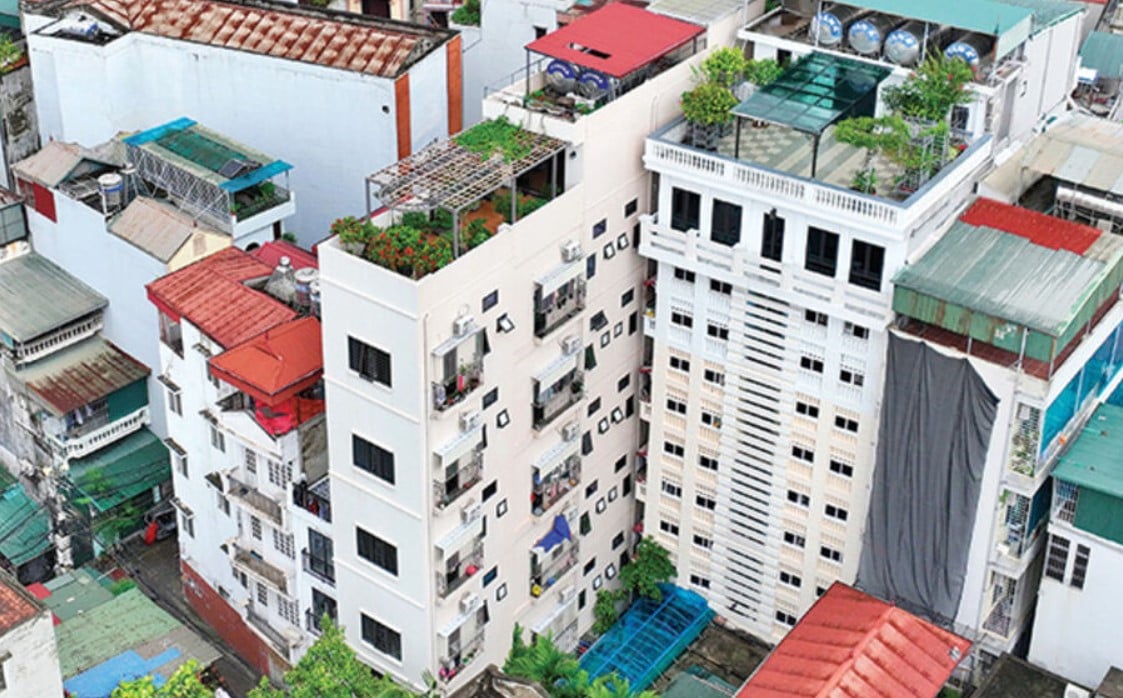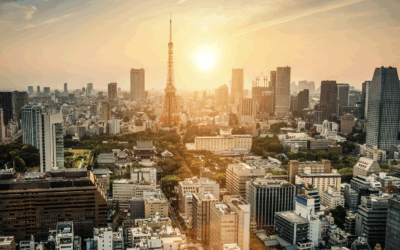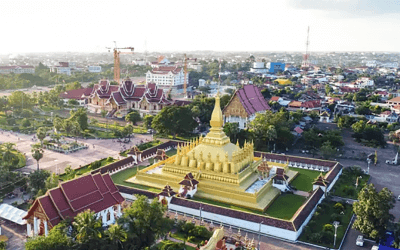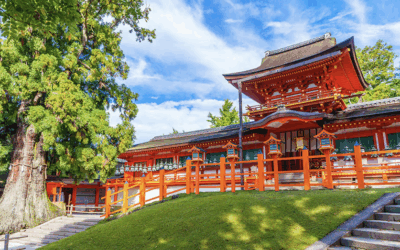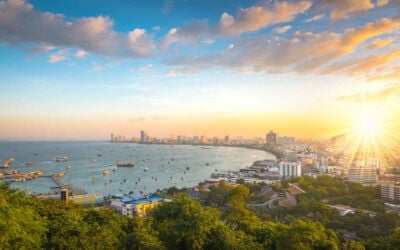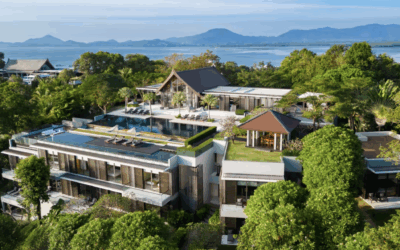Last updated February 4th, 2025.
Imagine this: you buy a beautiful house in Vietnam, where you plan to spend the rest of your life with your loved ones.
But a few decades later, somebody comes up to your property and says that the time’s up: your dream house is no longer yours.
Welcome to the reality of buying real estate in Vietnam!
You may think this is an exaggeration, and we wish we could say it was a joke, but that’s the reality in Vietnam’s property market.
Despite the country’s generally strong development, along with the prospects of trading stocks or starting a business here, we regretfully don’t recommend buying Vietnam real estate.
On paper, it doesn’t look so bad. After all, people who have been bullish on Vietnam will point to the Vietnamese Law on Residential Housing, which supposedly has made it easier for foreigners to own property here on a long-term basis.
Yet once you’re on the hook, and interested, realtors and developers will then try to ease you into the bad news.
Realtors in Vietnam say there are still “minor” issues with purchasing real estate, like the fact that you’ll be restricted as to what properties you can own depending on the number of foreign investors already in the area.
To give an example, non-citizens are collectively limited to purchasing a maximum of 30% of space in apartments and condos. Foreigners can’t own more than 10% of the properties in landed projects either.
If that weren’t enough, districts also limit the total number of houses that foreigners can buy in total.
That’s a major problem given that Vietnam is home to some of the world’s densest areas.
You may often find yourself blocked from investing in important regions before there is any sizable expat presence.
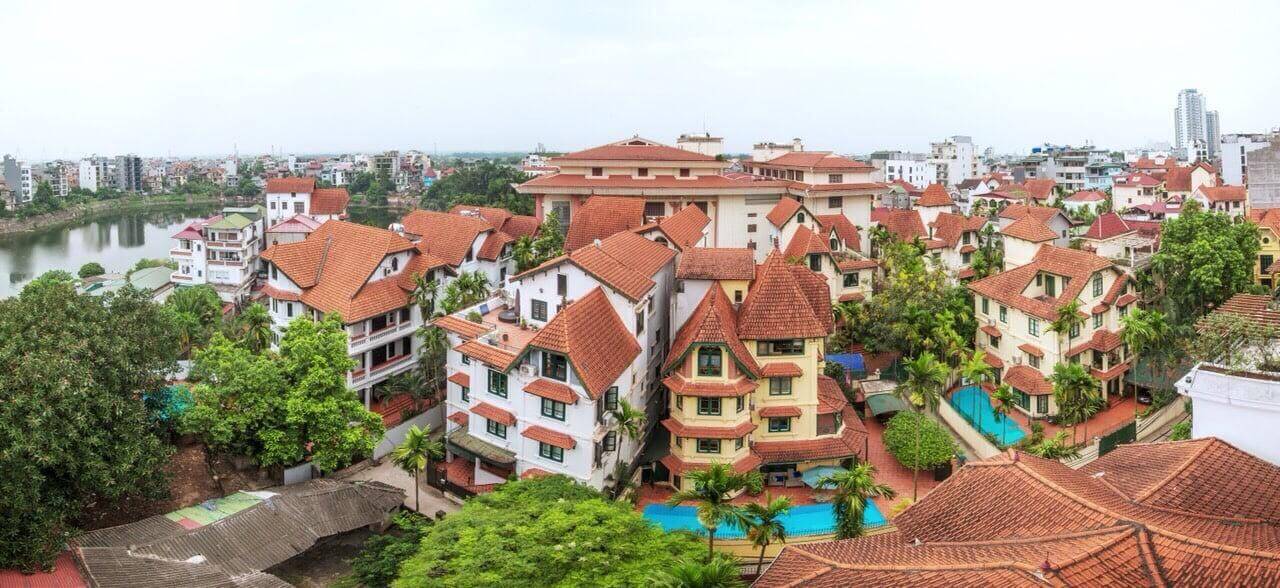
Vietnam house prices will surely rise due to a rising middle class, population growth, urbanization rate, and overall strong economy. Unfortunately, you can’t truly buy land in Vietnam – even if you’re a local.
Vietnam Foreign Property Ownership? It’s Very Difficult
The cherry on top is that you don’t, in a literal sense of the word, “own” the whole real estate that you’re supposedly buying.
Many in the western world are used to the idea that when you purchase a house, you also own the land underneath the building. But in other countries, Vietnam among them, it doesn’t necessarily work like that.
In law school, it’s often taught that real estate ownership is “a bundle of rights” to illustrate the complexities of property holding.
For instance, you might own a plot of land, but you might not have the right to build a skyscraper on it or open a shop there. These rights can be packaged into a contract or may not even be on offer.
In Vietnam’s real estate market, the bundle of rights that westerners typically enjoy in less exotic locales are separated from each other. There’s no way of getting the whole package of land, structure, and everything else.
You can’t truly buy property in Vietnam as a foreigner. Instead, every single plot of land is on a long-term leasehold.
Typically, it’s understood the government will renew these leaseholds when they expire. Whether they actually will or not is up for debate.
As a foreigner, you can purchase a structure on a plot of land in Vietnam. But you’re, in effect, renting any land from the government for a period of 50 to 70 years, depending on location.
So, can foreigners buy property in Vietnam? Sort of, but only if you consider a long-term leasehold as actually “buying”.
Vietnam’s real estate market is complicated, needless to say, and renewals are uncertain. You’ll have an easier time elsewhere in Southeast Asia unless you’re a local citizen.
Buying a House in Vietnam? Meet The Landlord
It’s crucial to remember that less than 50 years ago, Vietnam was a communist country, slowly transitioning to a free market.
The Socialist Republic of Vietnam, as it’s officially known, is still controlled by a one-party state that claims to be communist to this day.
As such, it’s not adverse to expropriation or occasionally putting aside the concept of property rights, especially if they’re not particularly convenient.
Caution is advised in the Vietnam real estate market, although we’re generally optimistic that foreign land ownership will be more straightforward in Vietnam over the next fifty years.
Yet as it stands, you’d be bending to the whims of random ill-thought-out policies with no means of appealing them.
Take the so-called “tube” houses in Hanoi, where somebody had the bright idea of taxing you based on the width of your home.
As such, the invisible hand of the Vietnam property market directed architects to build longer houses that go deep into a building but have a short width (often no more than two people standing side by side).
This type of madness may remind you of the “window tax” in seventeenth-century Britain, where people were charged by the number of windows they had. As such, people started to brick their windows to reduce taxes.
Such a policy didn’t work back then in Britain, and it doesn’t work now in Vietnam. But, like all things government-related, it will take a while for them to learn the historical lessons.
The lack of financial historical experience shows in many other aspects, like a weak local currency. The Vietnamese Dong has consistently dropped in value against the U.S. Dollar and most other major currencies over the past two decades.
Who’s to say that this worrying trend in the Vietnam real estate market won’t continue to be the case for the next two?
Better Alternatives to Vietnam Property
While you can gamble on property in Vietnam and make out rather well if you get all the right cards in the correct order, let’s ask a simple question: why bother?
In terms of overall value, housing in Vietnam pales in comparison to the likes of Cambodia within the scope of Southeast Asian property markets.
We’ve previously written about Cambodian real estate. But to give you an idea of the numbers, the cost per sqm is $1,000 in Phnom Penh compared to $3,000+ in Ho Chi Minh City, Vietnam.
Furthermore, you’ll own the real estate on a freehold basis instead of a pseudo-perpetual tenant relationship with the state. That’s basically the deal you’re making when buying a house in Vietnam.
It’s worth mentioning that Cambodia skipped every single financial crisis and recession over the past few decades, whether in 2020, the Dot-Com bubble, or the Asian Financial Crisis of the late ’90s.
On the other hand, Vietnam has maintained a respectable sub-7% annualized growth, but it’s no big secret that a lot of this success has been entirely dependent on China.
Vietnam is, after all, benefiting from the US-China Trade War. Smaller countries in Asia are gaining favor among as they aren’t affected by tariffs.
Still, some economists think Vietnam might be stopped by a glass ceiling – the so-called “middle-income trap”.
If they’re too expensive and don’t create value, capital could move to even less developed countries like Cambodia. Vietnam’s state-owned enterprises are already straining under international competition, and the government has started to privatize them.
The fact is: other countries in Southeast Asia like Cambodia, Malaysia, and the Philippines are far less bureaucratic when compared to buying real estate in Vietnam as a foreigner.
At its core, the reason you shouldn’t buy Vietnam property is that the opportunity cost of is just too great considering what other emerging markets in Asia have on the table.
FAQs: Real Estate in Vietnam
Can Foreigners Own Property in Vietnam?
No, foreigners aren't allowed to buy any real estate in Vietnam - not even condos, let alone land. But the lack of property rights isn't unique to foreigners. Vietnamese citizens can't own property in the true sense of the word either.
Every plot of land in Vietnam is on a long-term lease from the government for a period of up to 70 years. Therefore, nobody can truly own freehold property in Vietnam. It's only possible to obtain a leasehold.
How Much Does a House in Vietnam Cost?
The cost of real estate in Vietnam will depend on location, quality, and a multitude of other factors.
As a baseline rule though, if you're buying an average quality condo in one of Vietnam's major cities such as Ho Chi Minh City or Hanoi, you should expect to pay about $4,000 per square meter.
Can Foreigners Buy Land in Vietnam?
No, foreigners can't own land or any other type of property in Vietnam. All real estate in the country is on a 70 year leasehold, and it's not possible to obtain a freehold title in Vietnam.
Is Vietnam Real Estate a Good Investment?
Property values in Vietnam are expensive compared to other countries in Southeast Asia. On average, home values are even higher than in more developed countries such as Malaysia.
There's arguably not much room for capital appreciation because of this. Yields in Vietnam's major cities like Hanoi and Ho Chi Minh City are about 5% gross, which is moderate within a regional context.
Meanwhile, the fact that freehold land ownership in Vietnam isn't possible also puts a damper on the real estate investment case.
How High Are Rental Yields in Vietnam?
In Vietnam, you can expect gross rental yields of about 4% on average in major cities like Hanoi and Ho Chi Minh City.
As a general rule, smaller apartments in Vietnam yield higher at 5% or possibly even more in some cases. Larger units and houses yield less at around 3%.

